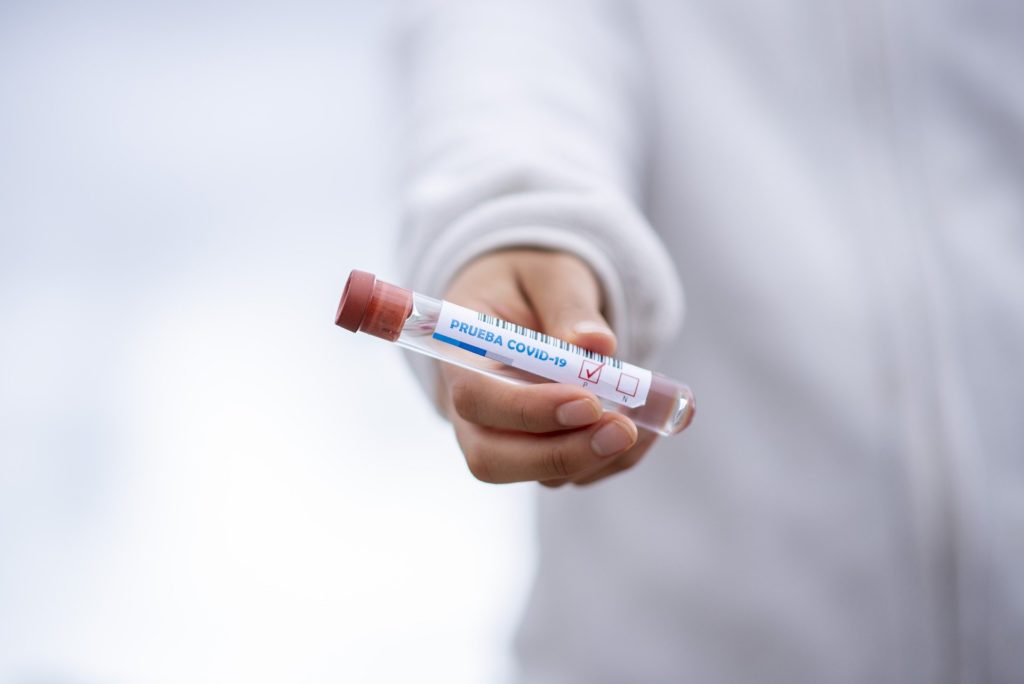Antibody testing has recently been approved for use to form part of the country’s response to the coronavirus pandemic.
In a statement on August 24, the South African Health Products Regulatory Authority (SAHPRA) announced that one serological test kit (rapid, point of care test kit) and five lab-based SARS-Cov-2 serology tests have been authorised for use.
What are serology tests?
Healthcare institutions largely rely on molecular polymerase chain reaction (PCR) tests which are able to detect and diagnose whether a person has been infected with COVID-19 and thus give a clinical diagnosis. The serology tests are different, as they can detect if one has developed antibodies for COVID-19 or not. Serology tests cannot be used for clinical diagnosis.
The test involves collecting a small blood sample from a patient using a device that pricks their finger. The blood enters the device’s vial and is sent to labs for analysis.
The blood is then tested to determine whether it contains antibodies, which are proteins that form part of the immune system’s natural defense response to fight off a virus. The majority of individuals who have had COVID-19, symptomatic or asymptomatic, and clinically recovered will have naturally developed antibodies to fight off the virus.
Importantly, the presence of antibodies does not confirm an individual has had COVID-19, nor does it confirm permanent ‘natural immunity’ to the virus.
The biological significance of specific anti-SARS-CoV-2 antibodies is still uncertain because the detection of antibodies may not correlate with immune protection. A positive antibody test result therefore should not be regarded as proof of immunity and must not be used to reduce or abandon protective measures.
Recommendation for use
The National Health Department has released guidelines for how these test may be used. They may be used to:
– diagnose COVID-19 retrospectively in patients who have recovered from a COVID-19 compatible illness and are negative based on results from the SARS-CoV-2 PCR test
– To diagnose COVID-19 in patients in who are admitted with suspected SARS-CoV2 infection but who test negative for RT-PCR as an ancillary investigation. This will include children with suspected multisystem inflammatory syndrome who may test negative by SARS-CoV-2 PCR
– identify past exposure to SARS-CoV2 in individuals optimally at 21-days post infection
– To assess SARS-CoV-2 vaccine responses
– To identify potential convalescent plasma donors
Limitations
A negative antibody test result does not reliably rule out prior SARS-CoV-2 infection. Possible causes would be:
– Insufficient sensitivity of antibody test
– Acute phase testing (specifically within 14 days post-symptom onset)
– Some patients may not form detectable antibodies, especially following asymptomatic SARS-CoV-2 infection
– Waning of antibodies over time, and as soon as 1-2 months in asymptomatic or mild cases
A positive antibody test result does not reliably prove prior SARS-CoV-2 infection. Possible causes would be:
– Insufficient specificity of antibody test
– Cross-reacting antibodies, e.g. those directed against other human coronaviruses
There is still much scientists don’t know about the human antibody response to SARS-CoV-2, so these antibody tests will be helpful in contributing to research on COVID-19 and its development.
These tests are not available for the general public for self-testing, it must be administered by trained health professionals only.
Picture: Pixabay

